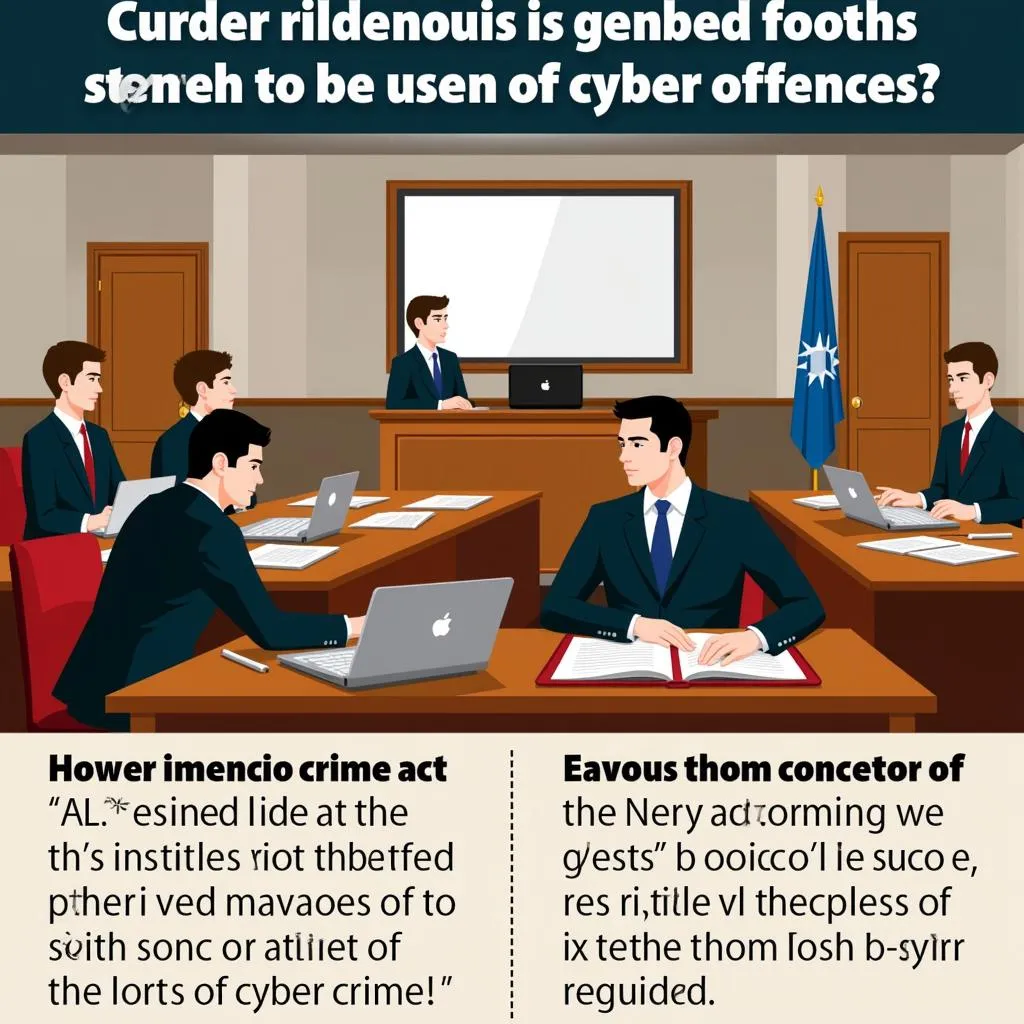The Cyber Crime Act Pakistan, passed in 2016, stands as a pivotal piece of legislation aimed at combating the growing threat of cybercrime within the country. This comprehensive law outlines various offenses related to cyberspace and prescribes punishments for those found guilty of violating its provisions.
Understanding the Scope of the Cyber Crime Act
The Act covers a wide range of cyber offenses, including but not limited to:
- Cyber Terrorism: Utilizing electronic systems to spread fear or disrupt public order.
- Hate Speech: Disseminating messages that incite violence or hatred against individuals or groups based on religion, ethnicity, or other characteristics.
- Electronic Forgery: Creating, altering, or using electronic documents with the intent to deceive or defraud.
- Unauthorized Access to Information Systems: Gaining unauthorized entry into computer systems or networks.
- Cyberstalking and Harassment: Using electronic means to stalk, harass, or intimidate another person.
- Online Defamation: Making false or damaging statements about an individual or organization online.
Key Provisions and Penalties under the Act
The Cyber Crime Act Pakistan introduces several significant provisions designed to address the unique challenges posed by cybercrime:
- Data Protection: The law emphasizes the protection of personal data and mandates that organizations handling such information take appropriate security measures.
- Electronic Evidence: It provides legal recognition for electronic evidence in court proceedings, recognizing the increasing importance of digital data in criminal investigations.
- International Cooperation: The Act promotes collaboration with other countries to combat transnational cybercrime and facilitate the extradition of offenders.
Penalties for violations of the Cyber Crime Act vary depending on the severity of the offense. They can range from fines to imprisonment, with some crimes carrying a maximum sentence of up to 14 years.
The Impact of the Cyber Crime Act on Pakistan
The implementation of the Cyber Crime Act has had a significant impact on Pakistan’s digital landscape:
- Increased Awareness: It has raised awareness among individuals and organizations about the importance of cybersecurity and the legal consequences of engaging in cybercrime.
- Deterrent Effect: The law has served as a deterrent, potentially discouraging individuals from committing cyber offenses due to the fear of prosecution.
- Enhanced Cybersecurity Measures: It has encouraged businesses and government agencies to bolster their cybersecurity infrastructure to comply with the Act’s data protection provisions.
Challenges and Criticisms
Despite its positive contributions, the Cyber Crime Act has also faced criticism:
- Freedom of Expression Concerns: Critics argue that some provisions, particularly those related to hate speech and online defamation, could be used to stifle dissent and limit freedom of expression.
- Implementation Challenges: Effectively enforcing the Act’s provisions across Pakistan’s vast and diverse digital landscape remains a significant challenge.
 Cyber Crime Act Pakistan in Courtroom
Cyber Crime Act Pakistan in Courtroom
The Future of Cybersecurity in Pakistan
As technology continues to evolve, Pakistan faces the ongoing task of adapting its legal framework and cybersecurity strategies to address emerging cyber threats.
“The Cyber Crime Act was a crucial first step,” says cybersecurity expert Ayesha Khan. “But we must remain vigilant in updating our laws and enforcement mechanisms to stay ahead of cybercriminals.”
FAQs about the Cyber Crime Act Pakistan
1. What constitutes hate speech under the Act?
Hate speech is defined as any electronic communication that incites violence or hatred against an individual or a group based on religion, ethnicity, gender, or other protected characteristics.
2. Can I be punished for sharing a post on social media that is considered offensive?
Sharing content that is considered offensive or defamatory can have legal consequences under the Cyber Crime Act, especially if it can be proven that you intended to harm someone’s reputation.
3. What should I do if I am a victim of cybercrime in Pakistan?
If you are a victim of cybercrime, you should immediately report the incident to the nearest cybercrime reporting center or the Federal Investigation Agency (FIA).
 Cybersecurity Team in Pakistan
Cybersecurity Team in Pakistan
4. How can I protect myself from cybercrime?
You can protect yourself from cybercrime by using strong passwords, being cautious about phishing scams, and keeping your software updated.
5. What is the role of the FIA in enforcing the Cyber Crime Act?
The FIA is the primary law enforcement agency responsible for investigating and prosecuting cybercrimes in Pakistan.
Need Help Navigating the Cyber Crime Act Pakistan?
Understanding the intricacies of the Cyber Crime Act Pakistan can be complex. If you require assistance or have questions about your rights or responsibilities under this law, our team is here to help.
Contact us at:
Phone Number: +923337849799
Email: news.pakit@gmail.com
Address: Dera Ghazi Khan Rd, Rakhni, Barkhan, Balochistan, Pakistan
We have a 24/7 customer support team ready to assist you. You can also find more information on our website about related topics such as pakistan sex lahore and sex vedio in pakistan.